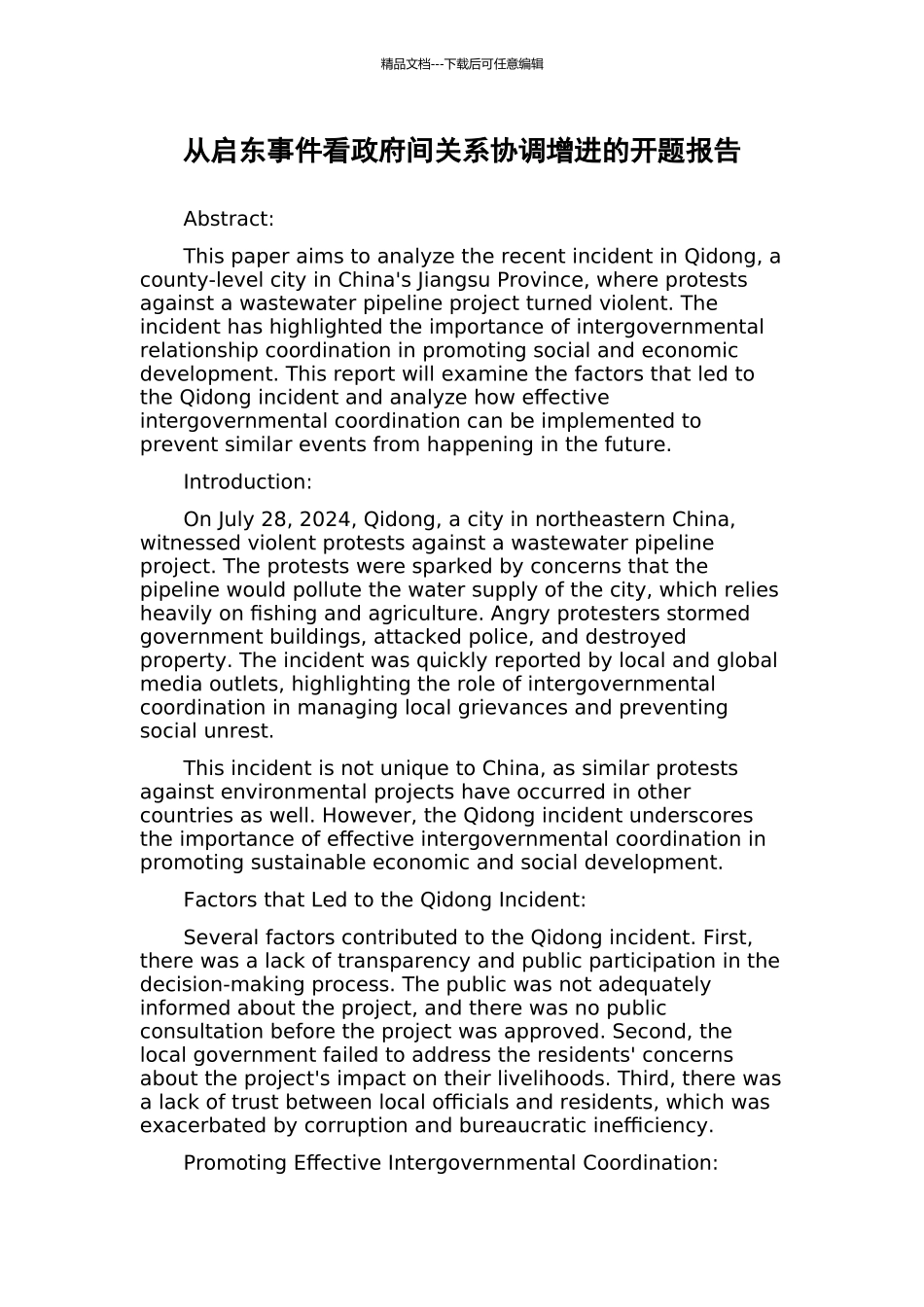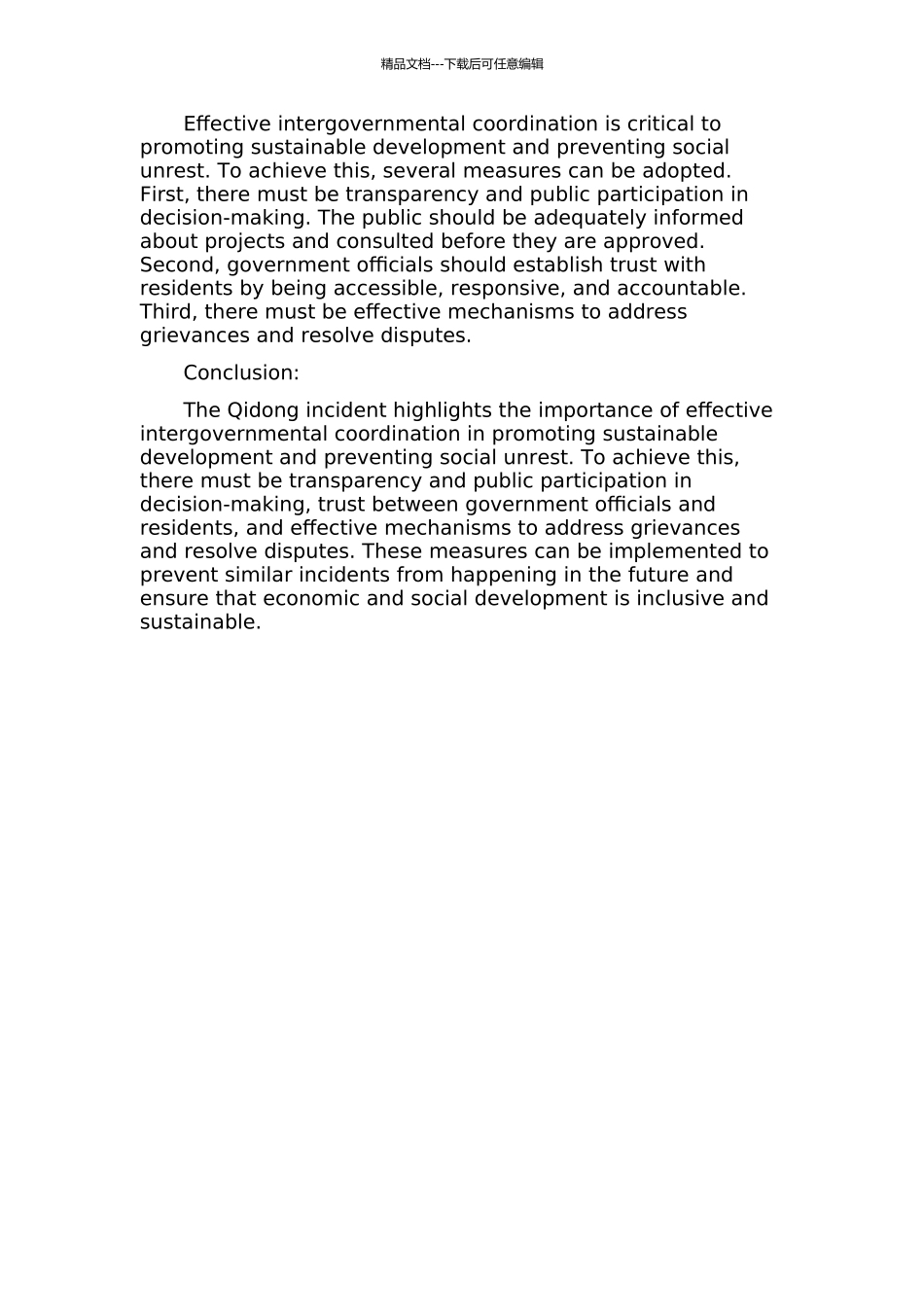精品文档---下载后可任意编辑从启东事件看政府间关系协调增进的开题报告Abstract:This paper aims to analyze the recent incident in Qidong, a county-level city in China's Jiangsu Province, where protests against a wastewater pipeline project turned violent. The incident has highlighted the importance of intergovernmental relationship coordination in promoting social and economic development. This report will examine the factors that led to the Qidong incident and analyze how effective intergovernmental coordination can be implemented to prevent similar events from happening in the future.Introduction:On July 28, 2024, Qidong, a city in northeastern China, witnessed violent protests against a wastewater pipeline project. The protests were sparked by concerns that the pipeline would pollute the water supply of the city, which relies heavily on fishing and agriculture. Angry protesters stormed government buildings, attacked police, and destroyed property. The incident was quickly reported by local and global media outlets, highlighting the role of intergovernmental coordination in managing local grievances and preventing social unrest.This incident is not unique to China, as similar protests against environmental projects have occurred in other countries as well. However, the Qidong incident underscores the importance of effective intergovernmental coordination in promoting sustainable economic and social development.Factors that Led to the Qidong Incident:Several factors contributed to the Qidong incident. First, there was a lack of transparency and public participation in the decision-making process. The public was not adequately informed about the project, and there was no public consultation before the project was approved. Second, the loc...

